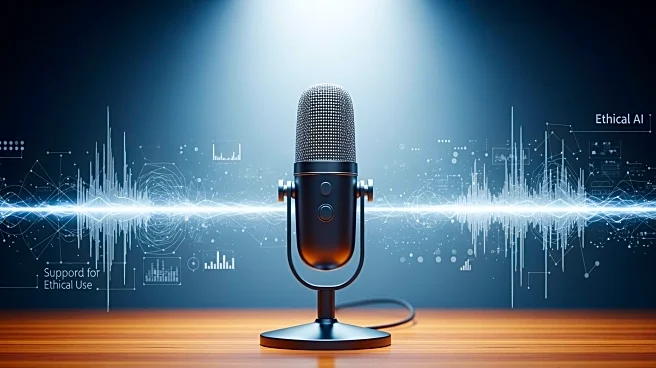What's Happening?
Bryan Cranston, along with SAG-AFTRA and major talent agencies like UTA and CAA, has praised OpenAI for implementing new consent protocols in its generative AI platform, Sora 2. This comes after Cranston's
likeness was used without consent, raising concerns about the misuse of performers' identities. OpenAI has strengthened its guardrails to ensure that voice and likeness replication requires explicit opt-in consent. The No FAKES Act, supported by OpenAI, seeks to legally protect individuals from unauthorized AI-generated replicas, requiring express consent for such uses.
Why It's Important?
The introduction of consent protocols by OpenAI is a significant step in addressing ethical concerns surrounding AI technology in the entertainment industry. It highlights the growing need for legal frameworks to protect artists' rights and prevent unauthorized use of their likenesses. This development could influence public policy and industry standards, ensuring that performers have control over their digital identities. The collaboration between OpenAI and talent agencies underscores the importance of safeguarding creative professionals in the age of AI.
What's Next?
The No FAKES Act is currently circulating in Congress, aiming to establish legal protections against unauthorized AI-generated replicas. If passed, it could set a precedent for future legislation concerning AI and intellectual property rights. The entertainment industry may see increased advocacy for similar measures, as stakeholders push for comprehensive legal safeguards. OpenAI's commitment to ethical practices may encourage other tech companies to adopt similar protocols, fostering a more responsible approach to AI development.









